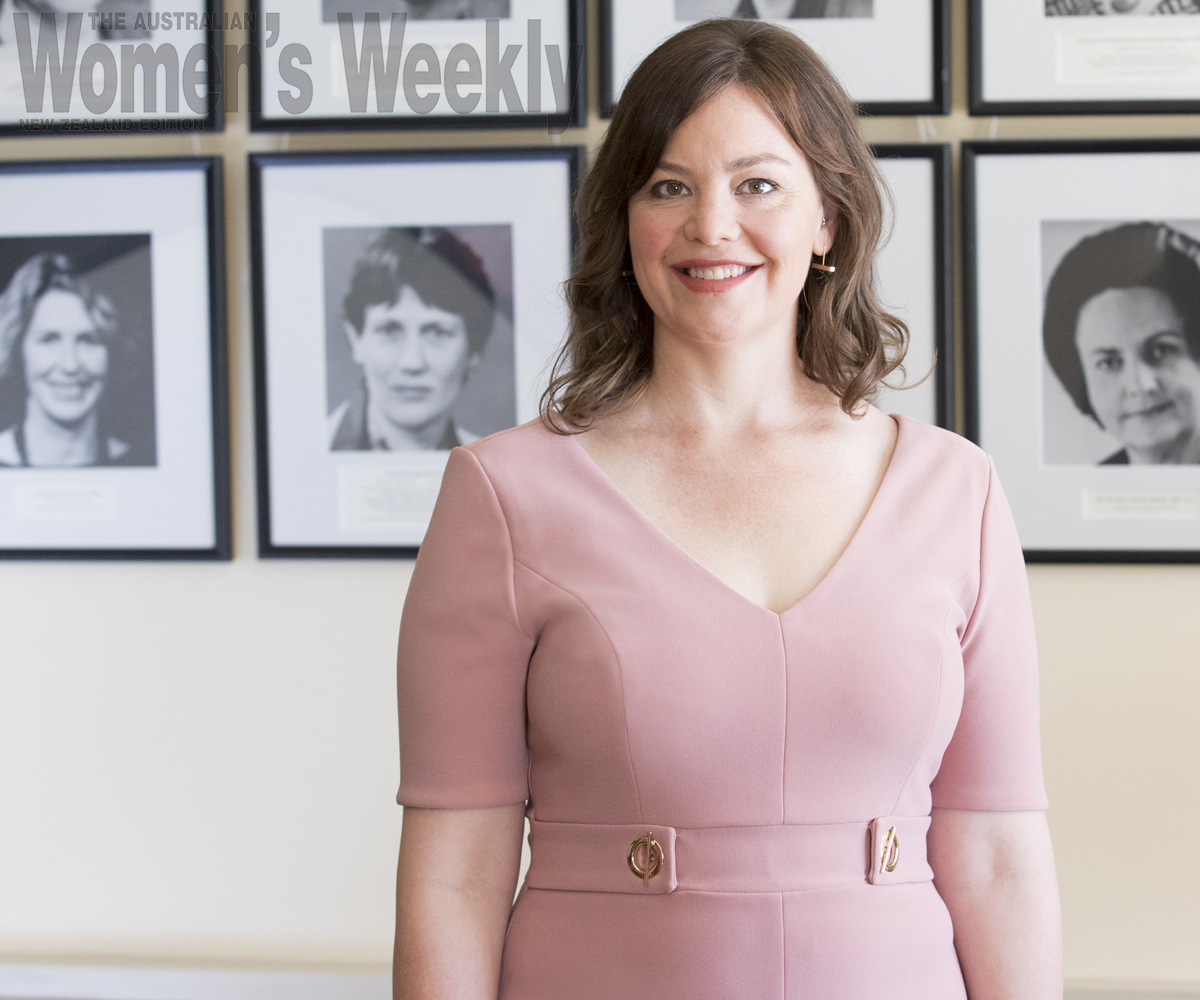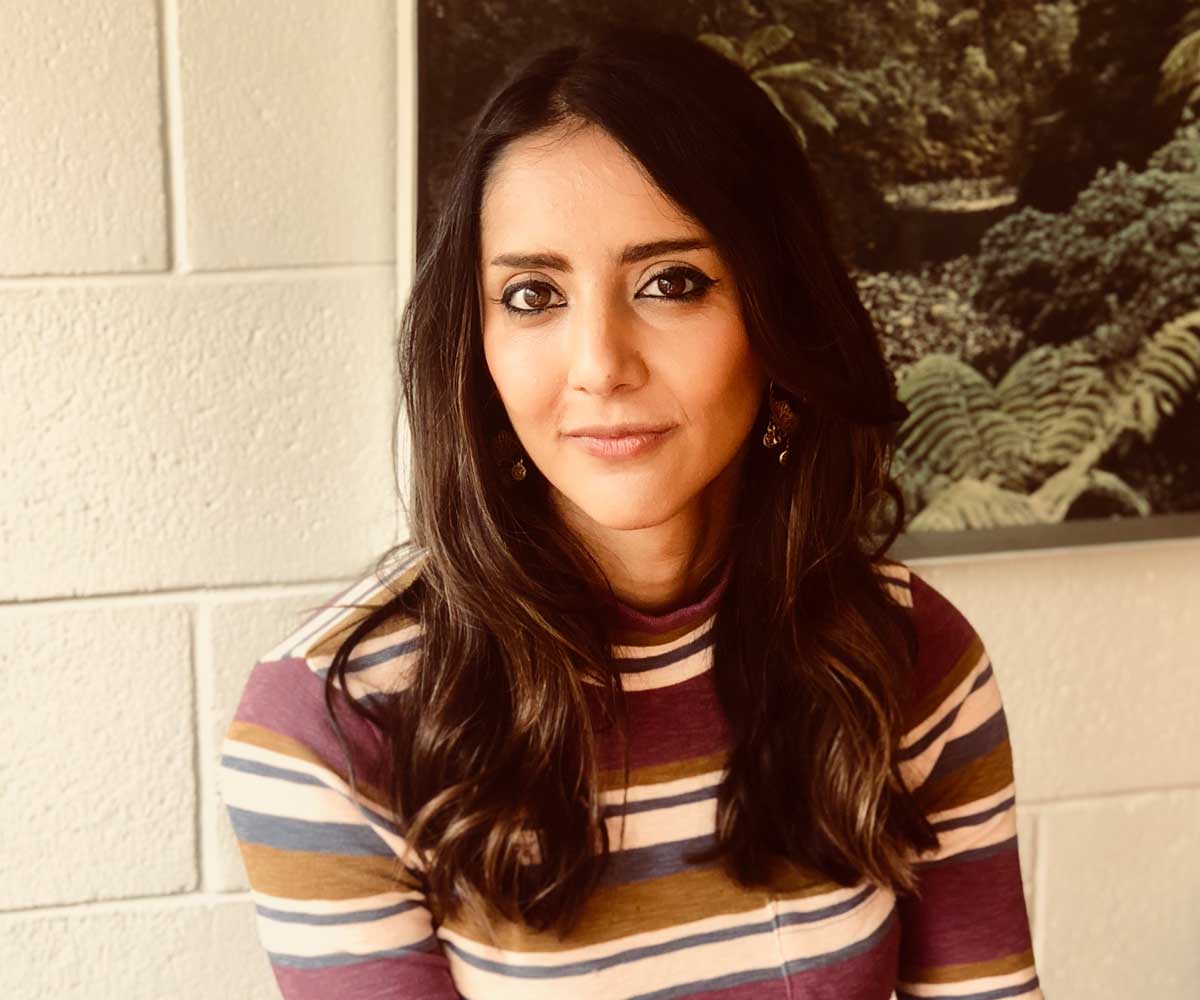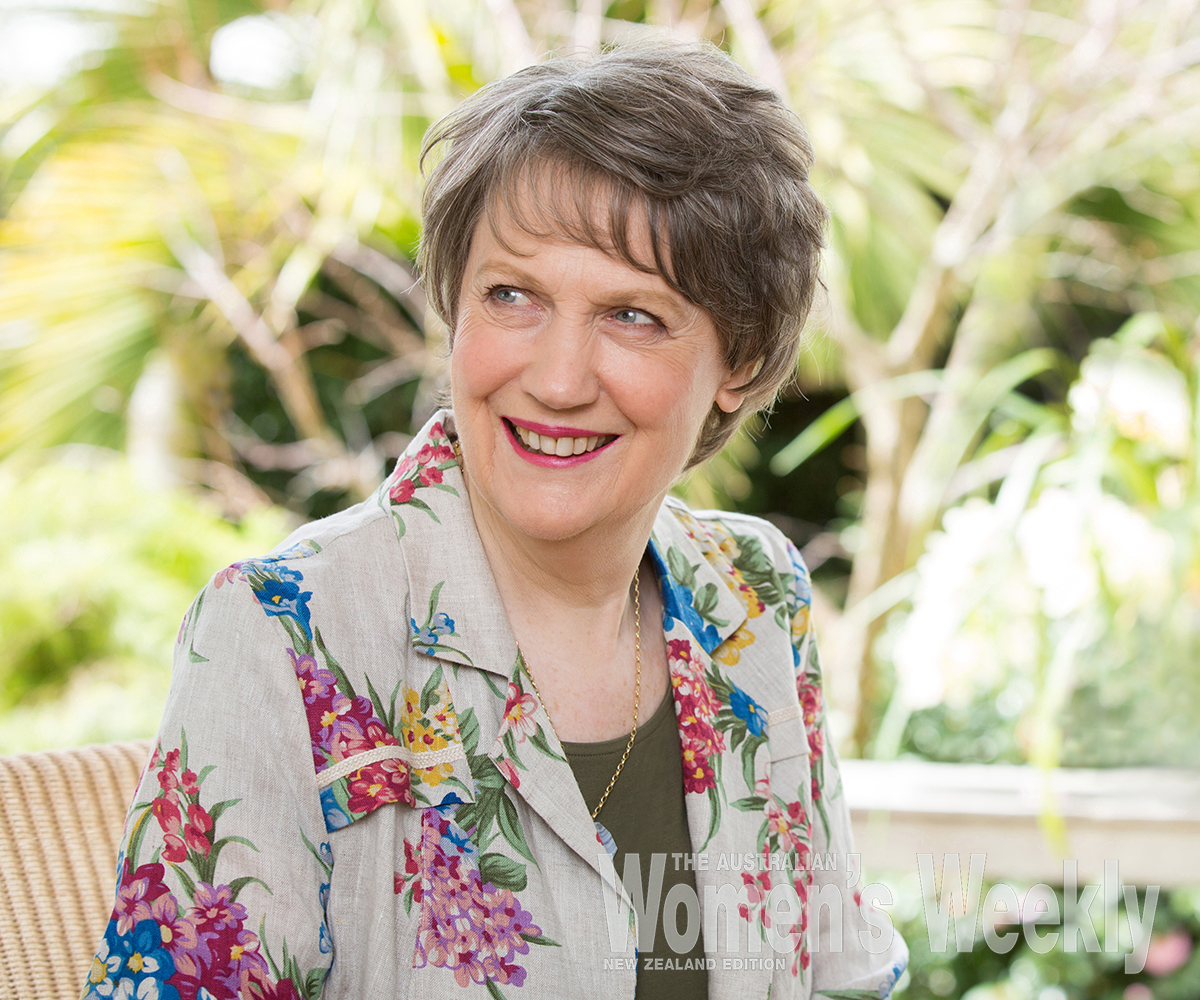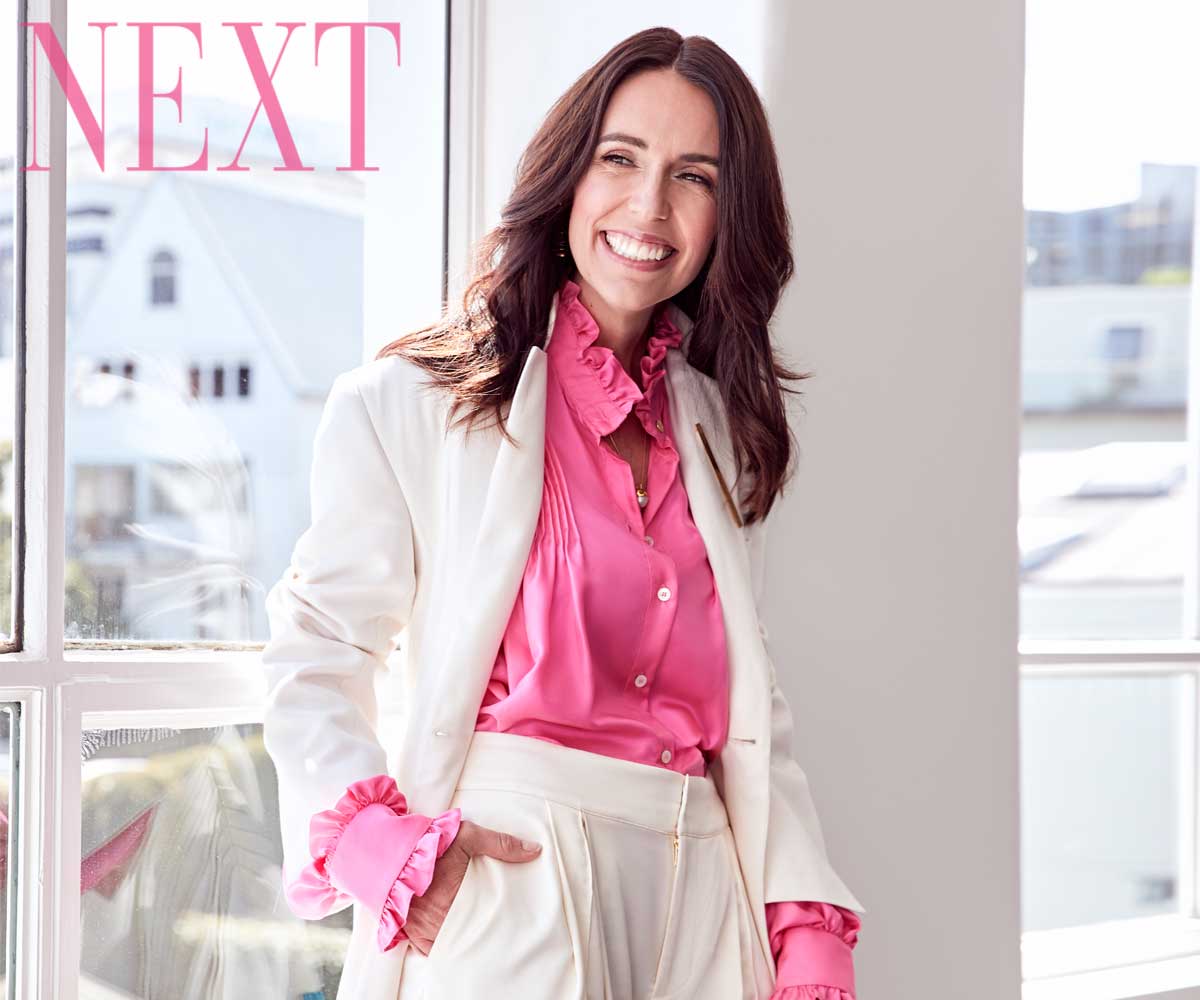What was intended as a simple photo for her friends and social media followers suddenly became a global platform for Greens MP Julie Anne Genter, 39, when she posted an image of herself riding a bike to Auckland Hospital to be induced to give birth last August.
It was picked up by the Greens Twitter account, which referred to it as “the most on-brand thing ever”.
They’re not wrong. Julie Anne is Minister for Women as well as Associate Transport and Health Minister, so riding a bike to the hospital to give birth might just be the ultimate photo opportunity for such a politician.
It turns out the world agreed. The story was picked up by international news organisations, including the BBC and CNN.
They then wanted to get in touch with the disbelieving parents-to-be, who were waiting it out at Auckland Hospital for more than 45 hours between being induced and labour starting.
“It was awkward in a way, because everyone in the world knew I’d gone to hospital and I wasn’t anywhere near having the baby,” Julie Anne laughs.
“Here I was, walking around Auckland Domain, waiting for the inducement to kick in, and it was quite funny to say, ‘Oh my gosh, it’s in The New York Times. It’s in The Guardian. I got an email from the Minister for Transport in Argentina. My partner’s aunt, who lives in Malaysia, heard it on the radio. We couldn’t believe it, but it was great and funny and wonderful.
“If that’s my 15 minutes of global fame, I’m pleased it was a positive story and that it will hopefully inspire people – particularly women – to think about how our transport in cities can be different, and how our leaders can be different. And how they, too, might be a leader like that one day. They might think, ‘This is what a minister can look or act like.'”
Changing the optics of leadership is an added responsibility placed upon many women in power, because they are still somewhat a rarity. And pregnant politicians are still one in a million – almost literally.
When Julie Anne first found out she was pregnant, it was at the tail end of 2017, just a few weeks after she’d been sworn in as a minister. Her reaction was one of joy but also minor panic, she recalls.
“How am I going to tell my colleagues? I might be the first minister to have a baby in office!” – she breaks off laughing, the gift of hindsight. Because it turns out there was another minister having the same reaction in secret – Jacinda Ardern, who announced her pregnancy the following month.
“As I was coming back from the 12-week scan that January, we were called to a special tele-conference for all ministers for the Prime Minister to tell us something. She told us she was 19 weeks pregnant and I was like, ‘Oh wow! I guess this isn’t going to be a drama after all.'”
Julie Anne and her partner, Peter Nunns, both initially wanted to keep baby Joaquin out of the media completely, but realised that it was unrealistic as they are out and about in Wellington all the time.
Also, as Julie Anne says, “He’s a really adorable baby.” She laughs.
“Like many mothers, I was suddenly thinking, ‘Oh, well, everyone should see how cute he is!‘ I’m more comfortable with the idea of showing him off now.”
They intend to keep it to a minimum though: “I’m fine with my life being public, but he should have some ability to consent to his life being public.”
Before Joaquin came along, the couple were also open about their fertility struggles; Julie Anne had previously had two miscarriages.
Sharing the personal side of a political life wasn’t something Julie Anne was always comfortable with, but as she’s become more settled with her role both in government and consequently in the limelight, it’s been easier and also more crucial.
“I do think it’s important – if you want to change the world, it’s important to tell your story. And talk about how you got to where you are, and what you’re doing differently, and what we can all do differently in the future.”
The fact that Peter has stayed home with Joaquin while Julie Anne returned to work last November is still seen by many as a big deal. Case in point, the pair were interviewed by Japanese media, who were fascinated by the working dynamic.
Julie Anne still seems slightly bemused by this – “Apparently it’s very unusual; the roles are very different in Japan from what I gather” – but says that Peter is happy to talk about how they make it work.
“He’s appreciated being able to role-model how men can take on family duties and really support their partners as well.”
When the Labour/Greens/NZ First government was first sworn in, Speaker of the House Trevor Mallard promised it was going to be a very baby-friendly parliament. And Julie Anne says that they have absolutely delivered on this mandate.
“It’s totally different than my first or second term in parliament. It’s so much more family friendly – it hasn’t been a big deal to feed Joaquin in the house. Nobody bats an eye.”
It’s invaluable for both mother and baby, she says.
“To have that support from my colleagues and to be able to breastfeed when I need to, it means I’ll be able to breastfeed for longer. There’s a very good chance that if I didn’t continue feeding him on a regular basis, I would lose the ability to do it completely. The more we, as a society, can support parents – both parents! – to be there in those critical first 1000 days, the more we’re going to benefit as a society.”

The famous phrase “It was the best of times, it was the worst of times” was originally used about the French Revolution, but it also fits quite well with the current political climate.
There’s never been a better time for female representation in government but, also, two of the world’s largest democracies seem constantly on the brink of meltdown thanks to the ongoing issues surrounding Brexit and Trump.
For Julie Anne, it’s an interesting time to be in politics.
“It’s really exciting, particularly being in this government that’s led by Jacinda Ardern,” she says.
“I feel there’s a real wave of young, progressive female leaders coming forward into politics… I’m very hopeful for the future. It’s time for a new generation of leaders – and a far more diverse group of leaders.”
And what event does she believe has spurred on this new rush of women officials?
“I think women felt they had to step up and do something because the situation in the United States was intolerable. But also, I know that it’s really important to me, personally, to encourage more young women to stand for office… and that’s probably been happening around the world as well. That encouragement is needed for many women to feel they should put their name forward.”
When asked if she feels pressure to prove to the next generation that it’s possible to be an MP with a baby, Julie Anne laughs quietly.
“There is a little bit of pressure and certainly, as a politician, you always feel that public scrutiny… [and] I have thought, ‘Well, there’s no way I can stop now. I have to keep doing this.’ That, to me, means I have to be very clear about what compromises I’m going to make, and have a plan to enable carrying on with my work and having enough emotional resource to be there for Joaquin as well.”
How Julie Anne entered politics
The irony is, it’s only fairly recently that Julie Anne ever saw herself in politics at all.
She grew up politically minded in Los Angeles, with strong opinions about protecting the environment and reducing inequality.
“I never thought that being a politician was the best way to change the world, because I grew up in the United States,” she says drily.
After doing a BA in Philosophy, Julie Anne become disillusioned with the political climate in her home country following George W. Bush’s election in 2000, so she shifted to Paris to study political theory and economics. She stayed there for more than three years.
She was missing the natural beauty of home, but the re-election of George W. Bush meant she wasn’t going back to the US any time soon. She’d met a few Kiwis over the years and started looking into a move to New Zealand.
“I was very drawn to the idea of a small, progressive country with MMP, a woman as Prime Minister, the Greens in parliament, work that I found fulfilling and also to have access to fantastic hiking and the ocean,” she says.
“It was really that idea of being able to have the outdoorsy lifestyle in a country where maybe there was a better potential for democracy to thrive than in larger countries, like the United States.”
She enrolled in a Masters of Urban Planning at the University of Auckland, and began volunteering for the Greens in 2006.

The proud new parents with baby Joaquin. Peter took over his care when Julie Anne returned to work.
Four years later she was asked by a couple of friends if she would consider standing as a candidate in the 2011 election (in which she was successful).
“Initially I felt embarrassed: ‘Who am I to take on this role?’ I think I was embarrassed because deep down I did think I would like to do this job but I didn’t want to admit it because it felt too egotistical.”
This feeling is very common among females and one of the arguments for having selection processes that prioritise diversity.
“We need to actively counter the discrimination built into the processes of selections, of our expectations of who should hold those roles. And that’s what a gender-balanced approach does; it creates a space where really talented, qualified women look at a position and say, ‘Oh, they need women. I’m going to put my hand up.’ Whereas if there isn’t that space, they might be less likely to say, ‘That’s the job for me.’ Women need to be shoulder-tapped, they need to be asked.”
Put it this way, she says, “Women are not under-represented because they are less competent… They’re far less likely to think they should put their hands up to take on a leadership role, even though they’re often more competent or qualified than the men who are putting their hands up for the same role.”
Equality and the environment – the two subjects she was most passionate about as a child – are now Julie Anne’s priorities.
Her work in urban planning was always about finding ways to do things that were better for people, better for the environment, and for less cost.
“I was looking for a way to make the world a better place – whether it was reducing inequality, or fighting climate change – and urban planning came up as something that was very practical, hands-on.”
Promoting common-sense changes with long-term benefits, whether it’s fighting for equal pay, working to improve road safety and cycling to work instead of taking a car, have become Julie Anne’s raison d’être.
“You make it easier for people to cycle for short trips, you take congestion off the road, you reduce people’s household transport costs, you improve their health and wellbeing and mental health, and you reduce pollution.”
Referring to climate-change predictions, Julie Anne says, “I don’t want people to feel there is no hope, that it’s too late. But actually, there is quite a lot of urgency. We don’t have that much time but we do have most of the solutions; so we really need to get in behind some of these changes and not ask, ‘How is this going to make my life worse?’ but, ‘What are the opportunities for me to contribute and to help improve things?'”




